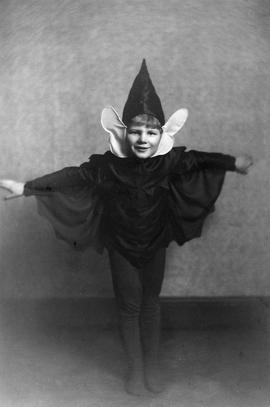Biographical Information: Fred Wendt was born in Faribault, Minnesota, on June 7, 1883. In 1903, he moved to Sauk Rapids, where he resided at the time of this interview and spent most of his career working as an educator. Upon relocating to Sauk Rapids, Wendt spent five years studying at a teacher’s school to become an educator and subsequently worked as a public-school teacher in Sauk Rapids for several years. He later became the principal of the Trinity Lutheran School for 45 years. Wendt passed away in 1973 and survived by his six children and thirteen grandchildren.
Transcript Summary: In an interview conducted on April 5, 1968, Fred Wendt discussed his life as an educator within Minnesota. Wendt noted that he was originally born in Faribault, Minnesota, in 1883, but moved to Sauk Rapids twenty years later to pursue a career as an educator. Wendt said he originally started out as a public-school teacher responsible for educating students of all grade levels, but later was appointed as the principal of the Trinity Lutheran School. He held that position for 45 years before his retirement. Additionally, Wendt also noted multiple other positions that he held during his time as an educator, including the role of secretary-treasurer for Sauk Rapids public schools and the position of Vice President of the State Teachers of Church Schools in Minnesota.
Interview conducted by C. Perry Schenk
There is no audio.
Ernestine (Gess) Wendt interviewed by Clarence Chisholm https://repository.stcloudstate.edu/wpabio/1396
Hattie (Runger) Wendlandt interviewed twice by Clarence Chisholm https://repository.stcloudstate.edu/wpabio/1394
Francis Xavior Wenck interviewed by Alexander Pallansch https://repository.stcloudstate.edu/wpabio/1393
Husband Aug. Welter
Husband Joseph Welsh
Husband James B. Welsh
Paul Wellstone
Paul Wellstone
Professor of Accounting, 1983-2012
Copied from Collections of the Minnesota Historical Society. Volume 14. Minnesota Biographies, 1655-1912, p. 837 by Tresa Gruber https://repository.stcloudstate.edu/wpabio/1392
- 00918.jpg
- Dimensions: 9.8 x 6.5 cm
- Physical Format: Black-and-white photograph
- Local Identifier: Claude Lewis Family Papers. Images. Sinclair Lewis. With Grace Hegger Lewis and Wells Lewis
- 00935.jpg
- Dimensions: 9.9 x 7.4 cm
- Physical Format: Black-and-white photograph
- Local Identifier: Claude Lewis Family Papers. Images. Sinclair Lewis. With Grace Hegger Lewis and Wells Lewis
- 00919.jpg
- Dimensions: 11 x 7.5 cm
- Physical Format: Black-and-white photograph
- Local Identifier: Claude Lewis Family Papers. Images. Sinclair Lewis. With Grace Hegger Lewis and Wells Lewis
Brenda Bedard
Professor of Special Education, 1974-2015+
Magazine clipping and program
Husband Edward Weller


